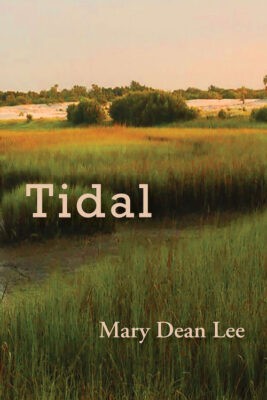Mary Dean Lee’s Tidal reminds me of the Brazilian poet Cora Coralina, who published her first poetry collection at the age of seventy-five – a well of memories overflowing.
Tidal Pine Row Press
Mary Dean Lee
$27.29
paper
114pp
9781963110074
Small sac in their throats vibrating […]
they hug or hump whatever is near:
logs, rocks, trees, shoes,
until a female appears.
These poems were lived before written, the definition of “confessional poetry” according to Barrett Warner, whom Lee thanks for helping shape her book. Some pieces feel as if from a different time and place – because they are – and the political realm is not as vivid as the private. The more personal poems, though, feel timeless. Take “Quench,” which opens and closes with someone named Alice visiting the Oconee River. Between Alice’s visits are entire lives: saving one child from mercury poisoning, letting another go after a car crash. As the poem circles back, the quench isn’t sated, but the river never closes either. And Tidal is very much alive.mRb






0 Comments